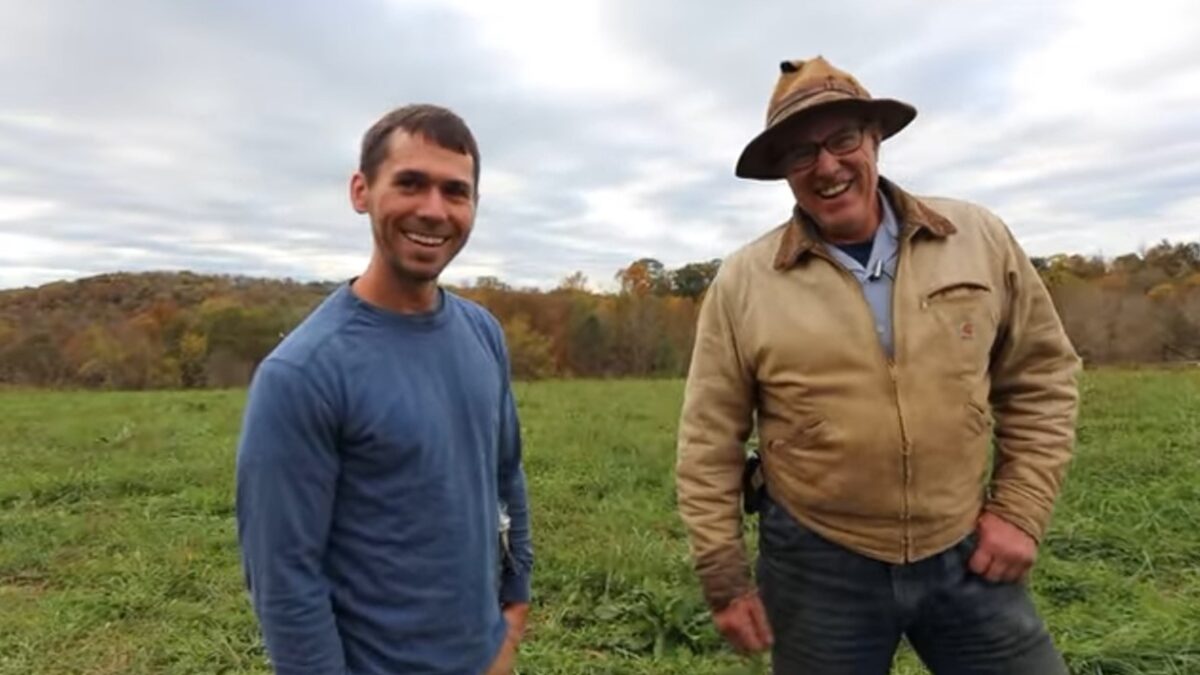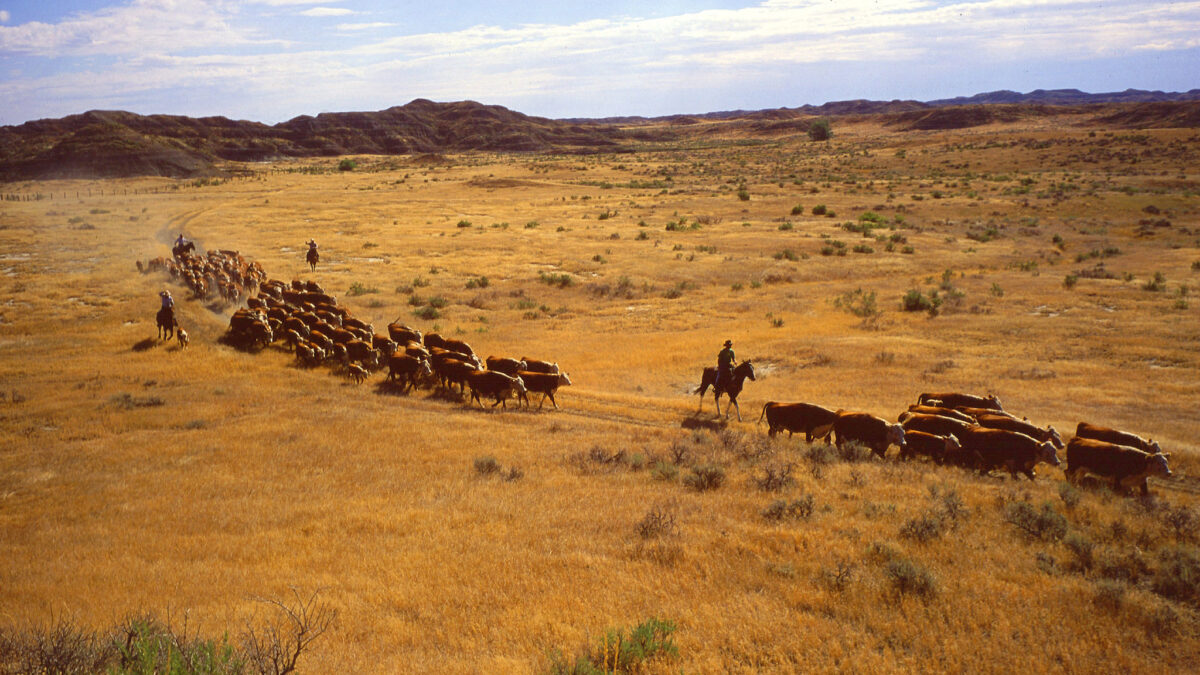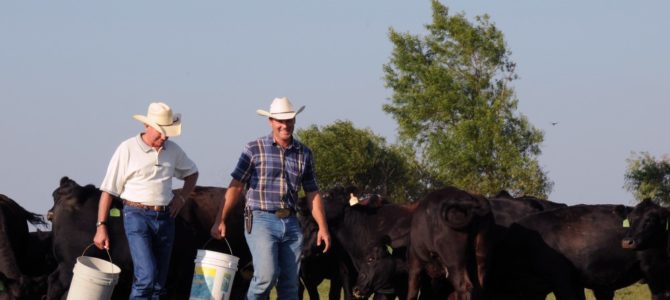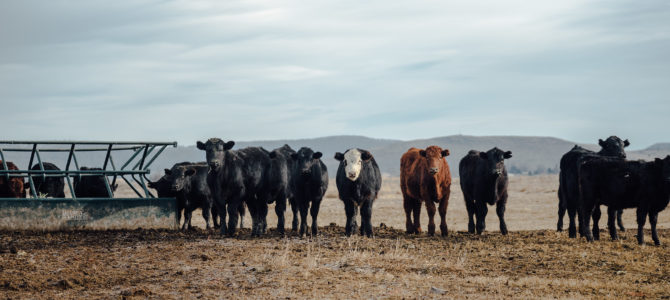Through a series of serendipitous events, America’s most famous farmer Joel Salatin spoke at Hillsdale College for a “Parallel Economies” conference that has just been posted free online.
After a 45-hour trip from South Africa to Hillsdale in rural Michigan, Joel didn’t miss a moment to engage with the hundreds of attendees. After Q&A and several interviews, Joel delivered a lecture to a packed auditorium on “Local Food as Parallel Agriculture.” He concluded his visit with a book signing for a long line of fans, old and new. Showing no hint of jet lag, he was ebullient and gracious throughout.
Woke ideology has so thoroughly corrupted public discourse and daily commerce that Americans are desperately seeking alternatives, or parallel systems, particularly in business, finance, media, and food. Left unchecked, wokeism will metastasize into every crevice of our lives to gaslight our minds and control our behavior. Joel’s words of wisdom are therefore particularly resonant, and only growing in interest as Americans seek to frame their lives in more resilient and self-reliant ways.
I first learned about the self-described “lunatic farmer” in spring 2020. There were precious few bright spots during what we euphemistically call “The Shutdown.” For me, one of those was Joel Salatin.
My husband and I had gotten into the habit of watching homesteading channels on YouTube, and one night a lady said a name with such tenderness, I scrubbed back to hear it again. Salatin, she said, had been on Joe Rogan’s podcast. Her tone of affection made me check him out.
I learned of a man, a farmer in the truest sense of the word, who had a compelling story to tell about soil, about the real meaning of environmentalism and stewardship of the land, and about the animals who are allowed and encouraged under Joel’s watchful eye to be what God intended them to be. In the online videos I watched, he described some of the self-sustaining, life-giving practices that make all that crazy hard work somehow worth it.
He also told the harrowing tale of his family fleeing Venezuela when he was barely 4 years old to return to the United States in 1961. They settled in the Shenandoah Valley. Its soil had eroded so much, it has taken three generations of Salatin farmers to bring that land back to life.
I was hooked. So I took my interest further, purchasing his books “Folks, This Ain’t Normal” — if ever there were a befitting title for the times in which we live! — and “Everything I Want to Do Is Illegal,” also apropos. I subscribed to his Lunatic Farmer blog, where he spotlights issues such as the U.S. Department of Agriculture’s harassment of Amish farmer Amos Miller, “vicious vegans,” and virtual reality goggles for cows.
It’s not just farmers or homesteaders who care about these topics and could be in the crosshairs of our own government. This past September, for example, the USDA announced an expansion of the uber-creepy People’s Garden initiative, originally launched in 2009, encouraging you and your neighbors to register your home garden. Yet another trap set under the guise of conservation, community building, and education to stop Americans from relying on the work of their own hands privately, without the government’s knowledge.
Eager to learn more, I ventured to Joel’s Polyface Farm in Swoope, Virginia, to hitch a ride on his Lunatic Farm Tour. The main challenge about visiting Polyface is getting there. The many twists and turns of backcountry roads take you past swaths of farmland and with increasingly sketchy cell service.
“We have a 24/7/365 open-door policy for anyone to come from anywhere to see anything, anytime, unannounced. We’re customer-inspected, not bully-compliant!” Joel’s voice boomed to the huge crowd. The place was packed with families and many young kids, which was itself inspiring. Clearly, people are willing to make the trip.
Joel often quotes Thomas Jefferson. On the ground just outside the entrance to the Polyface store is a cracked, round stone with a quotation from the Founding Father that reads: “No occupation is so delightful to me as the culture of the earth.”
That’s another thing about Joel — he’s happy! It’s refreshing to meet a happy warrior, although he may not like the “warrior” part. Instead, he calls himself a “Christian libertarian environmentalist capitalist lunatic farmer.”
No commas, mind you, no pauses. Not segmented or categorized into easy-to-pull-apart pieces; rather, a feisty determination not to be defined by a single label or anyone else. That feistiness makes him and his students the Davids fighting the Goliaths of the world, mainly the bureaucratic overreach of the U.S. government, particularly the USDA — or “U.S. duh,” as Joel pronounces it.
Joel talked about government regulations, harvesting animals, fear and hope, heaven and hell. He spoke of the prolonged isolation from humus, or soil, that ultimately leads to a separation from reality. “The more disconnected we are physically, emotionally, and spiritually from humans, the harder it is to maintain common sense.”
When your whole life is immersed in only seeing the achievements of the human and not the achievements of the divine, it has a profound impact on the way you view the world, the way you view truth. … When you wake up every morning to pavement, honking cars, traffic lights, electronics, and delivered pizza, you gradually lose the sense of participatory imperative in our stewardship — and that’s a powerful phrase, ‘participatory imperative.’ In other words, I don’t have to participate.
He is heartened, however, by the explosion of interest in the homesteading movement — a “tsunami” he calls it — that defies the modern moment.
Those of us who continued to participate in historically normal farm chores, garden production, local or biologically grown sustenance, and domestic culinary arts are today enjoying more independence and freedom. You cannot have freedom without participation.
His words resonate with those of us who grieve for the state of the nation and struggle with how best to pursue its restoration. When he talks about the “chickenness of the chicken” or the “pigness of the pig,” he’s not just talking about giving those animals the best life possible and getting the tastiest meat in return. He’s talking about something, whatever its form, being what it was meant to be.
Take that view and apply it to every plot of land, plant, animal, and human and then magnify it and what you get is revolutionary — something very different from what we are told today is real, what we deserve. Fake meat, the metaverse, gender fluidity, fortified elections, toxic jabs. No, thanks. We want something infinitely better. We were made for something infinitely better.
So if you haven’t already, turn off the idiot box, skip the commercials, and get to it.









